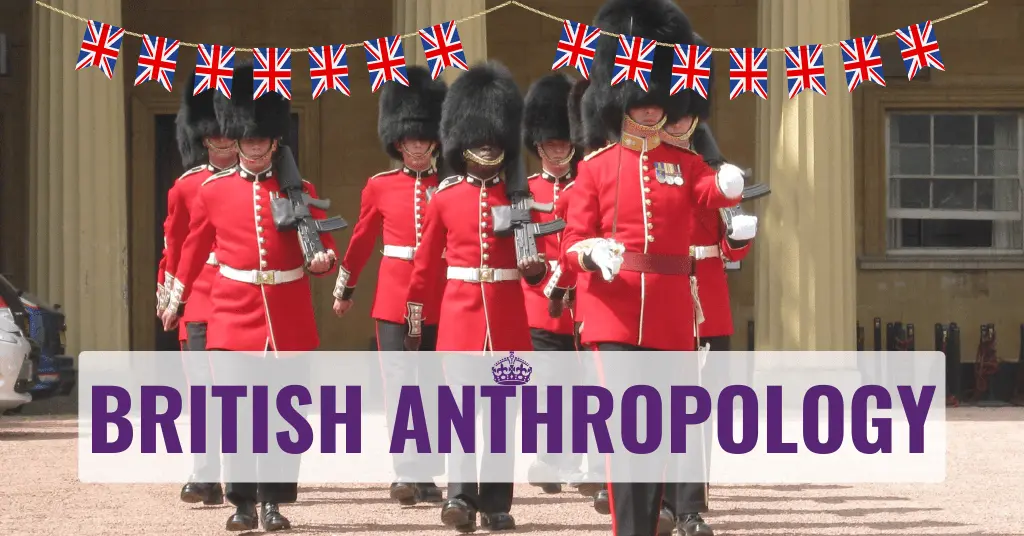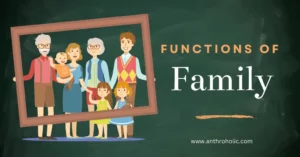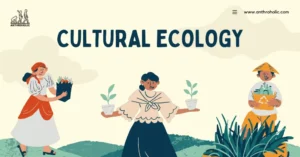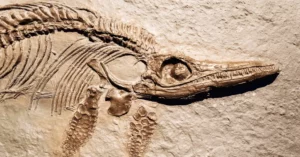AI Answer Evaluation Platform Live Now. Try Free Answer Evaluation Now
British Anthropology
Anthropology, as a discipline, seeks to understand the human experience across time and space, incorporating both biological and cultural dimensions. British anthropology, in particular, has played a significant role in shaping the broader field of anthropology, with its history, key figures, and contributions.

Early Beginnings
The roots of British anthropology can be traced back to the 19th century, when various scholars started examining human societies from a comparative perspective. These early anthropologists, influenced by the works of Charles Darwin and the theory of evolution, sought to understand human diversity and the development of societies.
Some notable early figures in British anthropology include:
- Edward Burnett Tylor (1832-1917): Often considered the father of modern anthropology, Tylor focused on the study of culture and developed the concept of “survivals” to explain the persistence of ancient customs in contemporary societies (Tylor, 1871).
- James George Frazer (1854-1941): Known for his comparative work on religion, Frazer’s seminal work, “The Golden Bough,” explored the connections between myths, rituals, and beliefs across various cultures (Frazer, 1890).
Emergence of Ethnographic Fieldwork
The development of ethnographic fieldwork as a primary method of data collection marked a significant shift in British anthropology. Pioneered by figures such as Bronisław Malinowski and Alfred Radcliffe-Brown, this approach emphasized the importance of firsthand observation and understanding of cultures and societies.
- Bronisław Malinowski (1884-1942): Malinowski’s work on the Trobriand Islanders introduced the concept of participant observation, which involves immersing oneself in the society being studied to gain deeper insights (Malinowski, 1922).
- Alfred Radcliffe-Brown (1881-1955): As a proponent of structural-functionalism, Radcliffe-Brown’s focus was on understanding the interconnectedness of social institutions and their role in maintaining social order (Radcliffe-Brown, 1952).
Theoretical Perspectives and Debates
- Structural-Functionalism: Structural-functionalism, as a theoretical perspective, dominated British anthropology for several decades. This approach posits that societies are composed of interconnected parts or institutions that serve specific functions to maintain the overall stability of the social system (Radcliffe-Brown, 1952).
- Social Evolutionism: Influenced by the theories of Darwin and Spencer, social evolutionism was a prevalent perspective in early British anthropology. Social evolutionists, such as E.B. Tylor and J.G. Frazer, sought to understand the progression of societies from “primitive” to “civilized” stages, often implying a linear and hierarchical progression (Tylor, 1871; Frazer, 1890).
- Marxism and Political Economy: Marxist and political economy perspectives gained prominence in British anthropology during the 20th century. These approaches focus on the role of economic and political factors in shaping human societies and highlight the importance of class, power, and exploitation (Wolf, 1982).
- Symbolic and Interpretive Anthropology: Emerging in the latter half of the 20th century, symbolic and interpretive anthropology shifted the focus towards understanding the meaning and significance of symbols, rituals, and practices within specific cultural contexts. Key British figures in this subfield include Victor Turner and Mary Douglas, who emphasized the importance of analyzing cultural symbols to understand the deeper meanings and beliefs that underpin human societies (Turner, 1967; Douglas, 1966).
- Feminist Anthropology: Feminist anthropology emerged as a critical response to the male-dominated perspectives that had long shaped the discipline. British anthropologists, such as Marilyn Strathern and Henrietta Moore, contributed to this movement by examining gender relations, power dynamics, and the role of women in various societies, thereby challenging androcentric assumptions and biases (Strathern, 1988; Moore, 1988).
Notable Contributions to the Field
Kinship Studies
British anthropologists made significant contributions to the study of kinship, focusing on the social organization, inheritance patterns, and marriage practices of various societies. Some influential works in this area include:
- Fortes, M. (1949). The Web of Kinship among the Tallensi. Oxford: Oxford University Press.
- Leach, E. R. (1961). Rethinking Anthropology. London: Athlone Press.
Religion and Ritual
The study of religion and ritual has been a central focus in British anthropology, with scholars examining the role of myths, beliefs, and practices in shaping human societies. Key works in this area include:
- Evans-Pritchard, E. E. (1937). Witchcraft, Oracles and Magic among the Azande. Oxford: Clarendon Press.
- Turner, V. (1967). The Forest of Symbols: Aspects of Ndembu Ritual. Ithaca: Cornell University Press.
Political Anthropology
Political anthropology emerged as a distinct subfield in British anthropology, with scholars examining the nature of power, authority, and governance in various societies. Important works in this area include:
- Gluckman, M. (1963). Order and Rebellion in Tribal Africa. New York: Free Press.
- Gledhill, J. (2000). Power and its Disguises: Anthropological Perspectives on Politics. London: Pluto Press.
| Name | Theoretical Perspective | Major Contributions |
|---|---|---|
| Edward Burnett Tylor | Social Evolutionism | Cultural evolution, concept of “survivals” |
| James George Frazer | Social Evolutionism | Comparative study of religion, myths, and rituals |
| Bronisław Malinowski | Functionalism | Participant observation, ethnographic fieldwork |
| Alfred Radcliffe-Brown | Structural-Functionalism | Interconnectedness of social institutions, role in maintaining social order |
| Victor Turner | Symbolic and Interpretive | Analysis of cultural symbols, rituals, and their meanings |
| Mary Douglas | Symbolic and Interpretive | Study of cultural classifications, purity, and pollution |
| Marilyn Strathern | Feminist Anthropology | Gender relations, power dynamics, and the role of women in Melanesian societies |
| Henrietta Moore | Feminist Anthropology | Gender and power in African societies, feminist critiques of anthropology |
British anthropology has had a profound impact on the global stage, influencing academic institutions, research methodologies, and professional organizations. The discipline has also fostered international collaborations and the exchange of ideas, contributing to a more diverse and inclusive anthropological community.
Conclusion
The rich history and contributions of British anthropology have played a pivotal role in shaping the broader field of anthropology. From its early beginnings in the 19th century to the diverse theoretical perspectives and debates that have emerged over time, British anthropology has consistently pushed the boundaries of understanding human societies and cultures. The development of ethnographic fieldwork, as well as the contributions to subfields such as kinship studies, religion and ritual, and political anthropology, demonstrate the depth and breadth of British anthropological scholarship.
Furthermore, British anthropology has had a lasting impact on the global stage, influencing not only the academic landscape but also the practice of anthropology in various contexts. By fostering international collaborations and promoting the exchange of ideas, British anthropology has contributed to the development of a more diverse and inclusive anthropological community. As the discipline continues to evolve, it is clear that the legacy of British anthropology will remain an essential part of the broader anthropological conversation.
See Also
References
- Douglas, M. (1966). Purity and Danger: An Analysis of Concepts of Pollution and Taboo. London: Routledge & Kegan Paul.
- Frazer, J. G. (1890). The Golden Bough: A Study in Comparative Religion. London: Macmillan.
- Malinowski, B. (1922). Argonauts of the Western Pacific. London: George Routledge & Sons.
- Moore, H. L. (1988). Feminism and Anthropology. Cambridge: Polity Press.
- Radcliffe-Brown, A. R. (1952). Structure and Function in Primitive Society. London: Cohen & West.
- Strathern, M. (1988). The Gender of the Gift: Problems with Women and Problems with Society in Melanesia. Berkeley: University of California Press.
- Tylor, E. B. (1871). Primitive Culture: Researches into the Development of Mythology, Philosophy, Religion, Art, and Custom. London: John Murray.
- Turner, V. (1967). The Forest of Symbols: Aspects of Ndembu Ritual. Ithaca: Cornell University Press.
- Wolf, E. R. (1982). Europe and the People without History. Berkeley: University of California Press.



